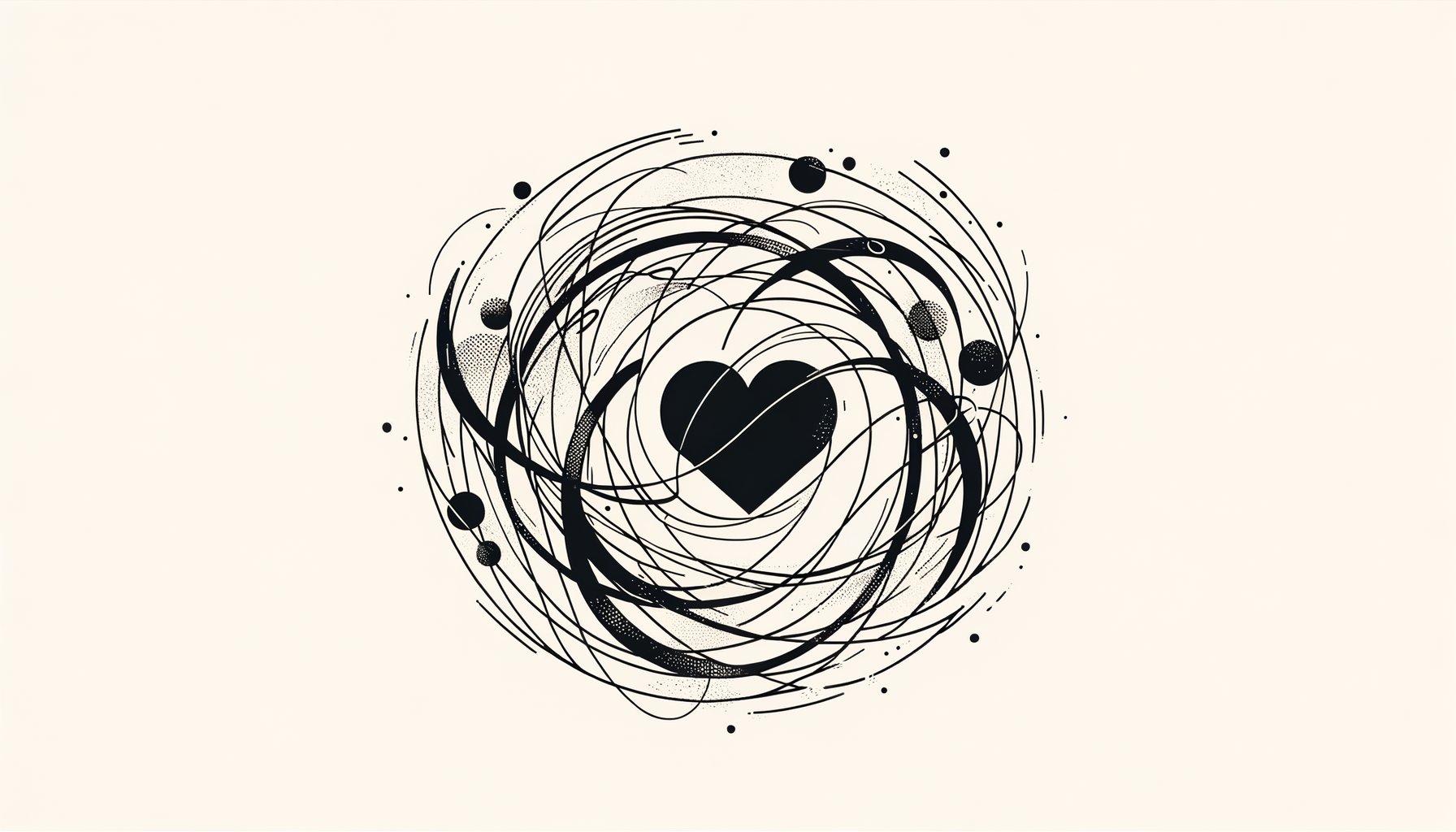What People Get Wrong About My Job
The Rom-Com Illusion
Whenever I tell people I'm a writer, especially for a publication devoted to dating and relationships, the reactions are...predictable. I’ve been called a modern-day Carrie Bradshaw (minus the wardrobe budget) and had conversations where people assume I sit around sipping matcha in perfectly cozy cafes, making effortless observations about love. Others think I’m some sort of oracle for all things romantic, dishing out golden advice to star-crossed lovers while dreamy saxophone music plays in the background.
In reality? Writing about relationships isn't all quirky meet-cutes and advice that sounds like it belongs in a Valentine’s Day movie trailer. It's work—beautiful, complicated, rewarding work—but work nonetheless.
Spoiler alert: If you’re picturing me in a candle-lit room, scribbling with a feathered quill as I channel stories about soulmates, let me gently burst that bubble. It’s more like me hunched over my laptop in leggings, eating day-old curry, and trying to find just the right balance between witty banter and solid advice.
Let’s clear up some misunderstandings, shall we?
Myth 1: I Know Everything About Love and Relationships
The funniest thing about writing about relationships is how often people assume I’m a Jedi master of love. Once, a friend texted me, “You must have the PERFECT relationship with all the stuff you write!” The irony? I got that message right after a petty argument with my partner over whether we’d order Thai or sushi. (It was sushi, and I regretted it immediately. Too much soy sauce. Classic rookie mistake.)
Here’s the truth: Writing about relationships doesn’t make you immune to their messiness. Sure, I’ve read studies on attachment styles, interviewed therapists, and spent an embarrassing amount of time analyzing what makes people tick. But being an expert on something doesn’t necessarily mean you’re perfect at applying it in your own life. You’ve heard the phrase, “Those who can’t do, teach”? I’d argue it’s more like, “Those who know just enough to overthink everything, write about it.”
So no, I’m not a walking relationship manual. What I am is curious, observant, and maybe a little nosy. Half my knowledge comes from making the same mistakes as everyone else—just with the added bonus of turning those experiences into semi-witty metaphors later.
Myth 2: It’s All About Cute Date Ideas
“So, do you just, like, write love tips all day?” my cousin asked me once, genuinely puzzled. (This is the same cousin who posts inspirational quotes set against pastel sunset photos, so I get where she’s coming from.) The quick answer? No. The longer answer? DEFINITELY no.
Writing about relationships isn’t just a Pinterest board of “10 Romantic Ways to Surprise Your Partner.” Sure, I’ll cover fun, feel-good topics occasionally—it’s always nice to send people away with a smile. But most of what I do involves unearthing complicated truths: how unresolved trauma impacts modern love, why ghosting stings as hard as it does, or how societal norms shape our expectations of romance. Sometimes, the job feels less like a writer and more like translating feelings people weren’t even sure they had into words they can point to and go, “Yes! That!”
Pop culture doesn’t help here. Movies and TV make relationships look so binary: you’re either in a blissful montage scene or sobbing dramatically in the rain. In reality, the nuances deserve attention. I’ve written about everything from long-distance struggles (thanks, Melbourne) to plateaus in long-term relationships (the vibe shift when “Netflix and chill” becomes just “Netflix”). Not exactly rom-com material, but relatable? Oh, absolutely.
Myth 3: It’s Easy to Write About What’s ‘Universal’
In a world as beautifully diverse as ours, calling anything about relationships “universal” is like claiming everyone can surf because I once learned to paddleboard in Tofino. Sure, there are threads that connect us—desire, vulnerability, a tendency to overanalyze texts—but the way those threads weave together depends entirely on who you are, where you’re from, and what life’s thrown at you so far.
Take my upbringing, for example. Growing up in Vancouver’s multicultural kaleidoscope, I learned early on that love languages don’t always translate smoothly. My parents, straight off the plane from Hong Kong, expressed love through pragmatic gestures—packing extra sandwiches “just in case” or driving me to my 7 a.m. swim practices without complaint. Meanwhile, I spent years confusing grand romantic gestures with genuine connection, thanks to a steady diet of Western rom-coms.
As a writer, it’s a fun challenge—and a responsibility—to celebrate all kinds of love stories. Yes, some clichés resonate broadly (who hasn’t sent that risky “What are we?” text at least once?), but others miss the mark entirely. My readers come from all walks of life, so I don’t assume one-size-fits-all advice will land. Instead, I try to ask questions rather than prescribe solutions, guiding people to find what love looks like for them.
Myth 4: It’s Glamorous (It’s Not)
Let me paint you a picture of what writing about dating is really like. Imagine me at my family’s café on a Sunday morning. I’ve claimed a corner table with my laptop, hoping the espresso fumes will help me bang out 800 words about emotional compatibility. But then a regular customer interrupts, asking why his girlfriend is still mad at him for forgetting her birthday...two months ago. (Sir, I am not your therapist.)
Other days, it’s the opposite problem. I’ll sit down to write the perfect metaphor about love feeling like the tide (gentle but powerful, pulling you under when you least expect it), only to realize I’ve spent the last 30 minutes doom-scrolling TikTok instead. Glamorous? Hardly. Rewarding? Absolutely.
At the heart of it, what I love most about my job is uncovering the small, universal truths in our messy, glorious quest to connect with each other. Sure, it’s not as glitzy as some people imagine—but if even one person finishes an article feeling seen, I’d say it’s worth all the Instagram rabbit holes in the world.
Final Thoughts: What You Should Really Know About My Job
Here’s the deal: Writing about relationships doesn’t mean I’ve cracked the code on love. It means I’m endlessly fascinated by it—its curves, its contradictions, its ability to lift us up or leave us undone. It’s less about building a treasure map to true love and more about celebrating love’s wild, unpredictable terrain.
So, the next time you picture me, don’t imagine a café muse straight out of Tumblr. Imagine someone just like you: navigating modern life with a mix of trial, error, and endless curiosity. Because at the end of the day, that’s what relationships—and writing about them—are all about: figuring it out, one messy, beautiful step at a time.




















